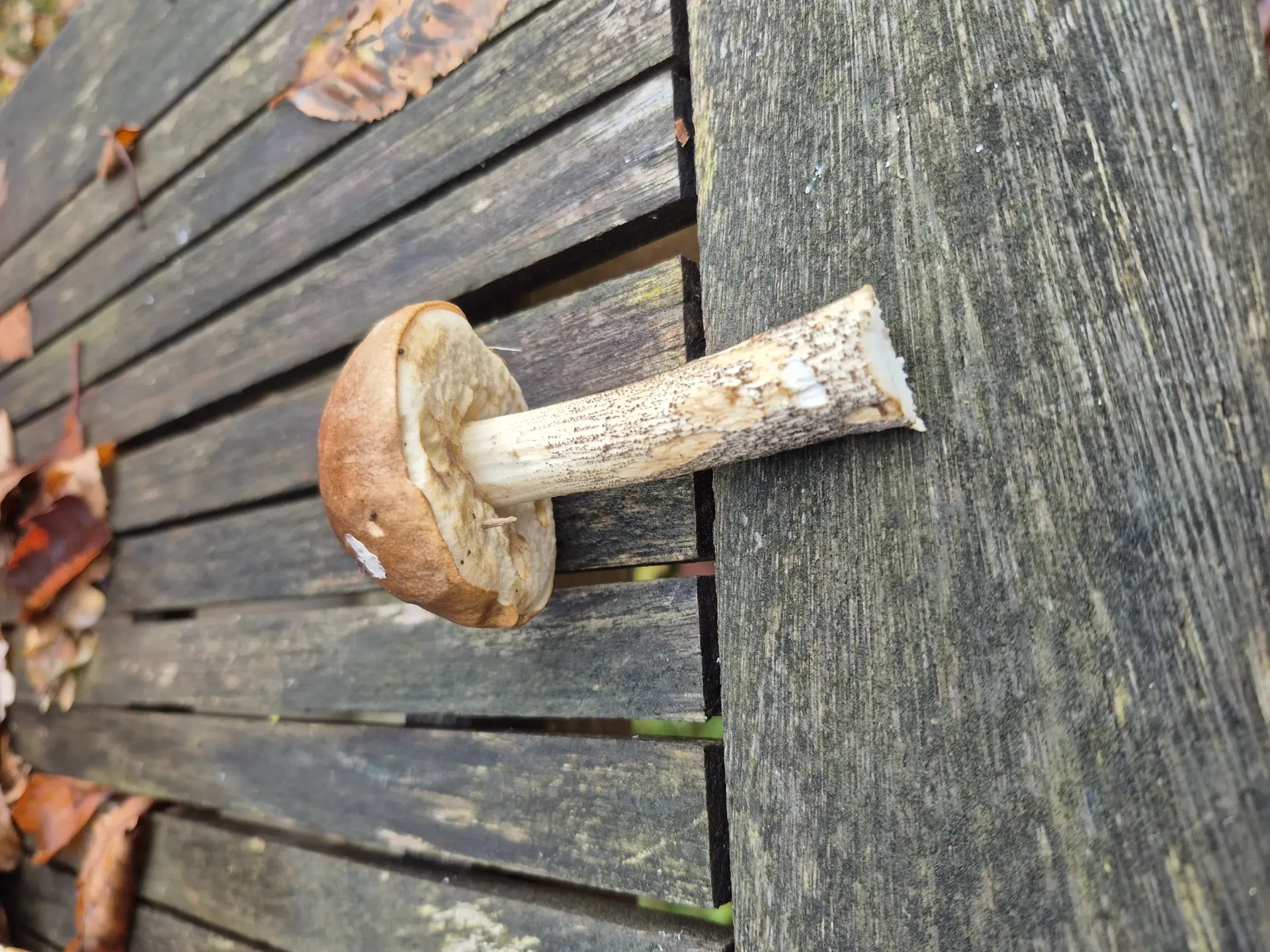Brown Birch Bolete
Leccinum scabrum
Identification of Scaber Stalk (Leccinum sp.): Handle with Caution

1 / 3
Toutes les images (3)
Caractéristiques clés
- Cap tawny to reddish-brown
- smooth
- Pore surface whitish or cream
- non-staining (apparent)
- Stem slender
- covered densely with dark brown/black scabers
- Context flesh white
- non-staining (apparent)
Couleur :
Brown cap, white pores, white stem with black scabers
Odeur :
No distinctive smell
Mode de croissance :
Single
Environnement :
Soil (Mycorrhizal)
Habitat et distribution
Habitat :
Deciduous forest, typically near birch trees
Distribution :
Widespread across Northern Hemisphere (Europe, North America, Asia)
Saisonnalité :
Summer to Autumn
Critères de confirmation
- Host tree association is unknown, critical for Leccinum species identification
- Context staining reaction upon cutting is not visible
Valeur économique
Demande du marché :
Low - Locally gathered in some regions
Gamme de prix :
N/A
Usage commercial :
None
Espèces similaires
Bitter Bolete
Tylopilus felleus
Différences clés :
- Pores turn pinkish/brownish with age
- Stem features true dark brown reticulation (netting), not scabers
Orange Birch Bolete
Leccinum versipelle
Différences clés :
- Cap bright orange or reddish-orange
- Context stains blue or greenish-blue when cut
Action recommandée
Do not consume. Identification to species level requires host tree confirmation and observation of context staining.